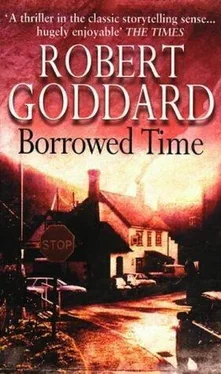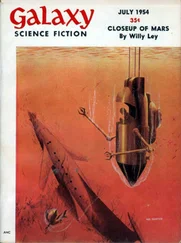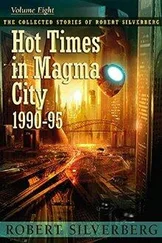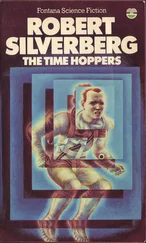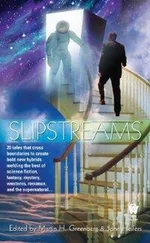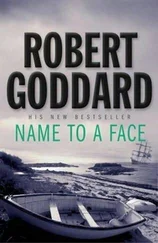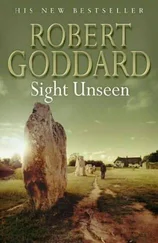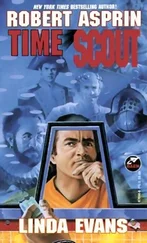“Can you be sure of that?” He smirked. “Look at it this way. Why risk it? What’s it to you? The girl’s mother. This bloke’s wife. Some poxy old painter. What did they ever mean to you? Nothing, right?”
I almost wanted to smile. Naylor had just repeated my mistake. He’d fallen into the same fatal error. And taken my decision for me. “You’re right, of course,” I said. “They were nothing to me but strangers. Perfect strangers.”
“There you are, then.”
“Do you know why I told Sarah to wait outside? I didn’t. Until now.” I raised the gun and pressed the barrel against his forehead. His eyes widened. His mouth dropped open. He tried to step back, but, with the rim of the bath behind his knees, there was nowhere for him to go. “Can we really change anything, do you think?” Maybe we can, Louise. Maybe we can’t. I don’t know. I’m still not sure. But finishing things? That’s different. When the moment comes and you recognize it for what it is, that’s completely different. “There’s been a change of plan, Naylor. We aren’t going to wait for the police after all. Or, rather, you aren’t.”
“What?”
“You should be grateful. I’m actually doing you a favour. This way you don’t have to go back to prison. And you find out how Louise Paxton felt when she realized you weren’t going to spare her life.”
“Hold on, mate. You can’t be-”
“Serious? Oh yes. I’m serious.” The trees thinned before me as I ran. There was a clearing ahead, a sun-filled glade where Louise was waiting. And this time I knew she wouldn’t walk away. “Never more so.”
“Yeh, but-”
He didn’t finish his sentence. Although, in another sense, I suppose you could say he did. He paid the overdue penalty for what he’d done. There and then.
It began more than three years ago, on a golden evening of high summer. And it ended yesterday, as a winter’s night closed its shutters around me. Was it only yesterday? Sitting here, it seems so much longer ago and farther away. Time has stretched in the telling. But I’ve nearly finished now. Soon, you’ll have your statement. Then you’ll be free to type up your reports and draw your official conclusions. Then you really will know it all.
It’s hard to believe, but it’s true. Just twenty-four hours ago, I stood with the gun in my hand and stared down at Naylor’s body in the bath, listening to his blood slowly trickle away. I wasn’t sorry I’d killed him. I’m not sorry now. I don’t think I ever will be. But there were more powerful emotions than sorrow to contend with in the aftermath of what I’d done. Shock made me drop the gun and recoil as it clanged against the enamel of the bath. Horror made me smear the bloodstains across my shirt and coat in a vain effort to wipe them away. Fear made me lean helplessly against the hand-basin, trembling and panting as a wave of nausea swept over me. Disbelief made me gape at the reflection of my face in the mirror above the basin.
And only then did I see Sarah, standing in the doorway behind me. She came forward and put her arms around me, resting her head against my shoulder. We stood like that for several minutes, neither of us speaking. Then we made our way to another room, faintly lit by the glow from a lamp in the communal garden beyond the window. We sat on the floor near the door, our backs to the wall. Still we said nothing. I supposed-when I became capable of supposing anything-that we were waiting to hear a police siren wail towards us through the distant hum of the traffic. But when Sarah broke the silence between us, I realized we weren’t.
“I haven’t called the police, Robin. I never left the flat. When it came to the point, I couldn’t bring myself to. There was something strange in your voice when you told me to get out. Something… ominous. I stood in the hallway, trying to work out what it was, waiting and listening, quite what for I didn’t know. Then I heard the gunshot.”
“Well, you’d better call the police now, hadn’t you?”
“Are you sure you want me to? There’ll be no going back if I do.”
“There’s no going back anyway.”
“But there is. For you. If you left before I called the police, there’d be no need for them ever to know you’d been here. I could tell them Paul had shot Naylor, then himself. And I could tell them why.”
“It wouldn’t work. My fingerprints are on the gun.”
“We could wipe them off. And off anything else you’ve touched. Besides, they wouldn’t be looking for your fingerprints.”
“It still wouldn’t work.”
“As a matter of fact, I think it would. I think you could leave here now and fly out to Rio tomorrow with no questions asked.” She slipped her hand into mine. “Why not go, Robin? This was my idea, not yours. Why should you have to answer for it?”
I stared into the darkness around us, tempted by the thought of being able to walk away, untouched and unsuspected. The chance was there for the taking, a chance very close to a certainty.
But, if I’d gone, who would have told you she didn’t want it to end as it did? You’d hardly have taken her word for it, would you? She knew that, of course. She knew it very well. So did I. That’s why I had to refuse. Because two people can only cease to be strangers to each other once. From then on, there really is no going back. The only mistake is to believe there may be. But we’re supposed to learn from our mistakes, aren’t we? I walked away once and lived to regret it. This time, I’ll stand my ground.

ROBERT GODDARD is the author of nineteen bestselling novels, including Never Go Back, Into the Blue, Play to the End, Hand in Glove, Borrowed Time, Sight Unseen , and In Pale Battalions. He lives in England, where he is at work on his upcoming novel, Made to Be Broken.
***

